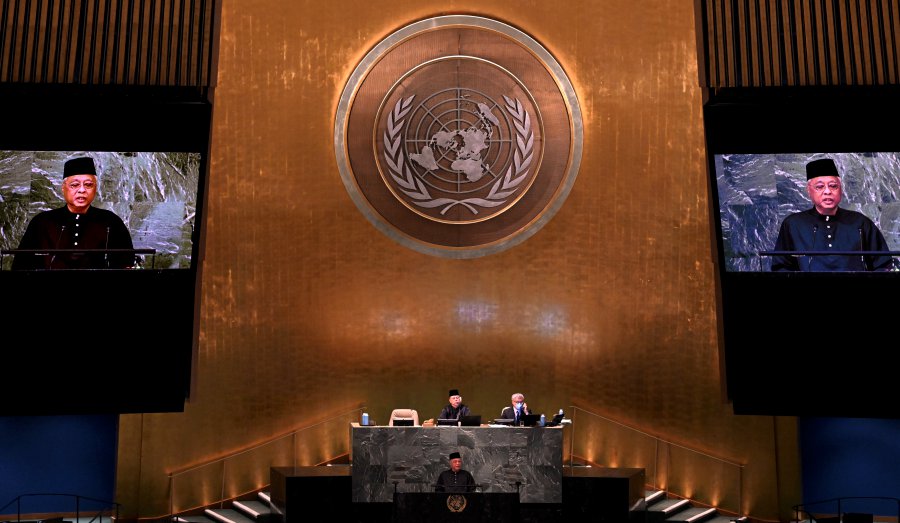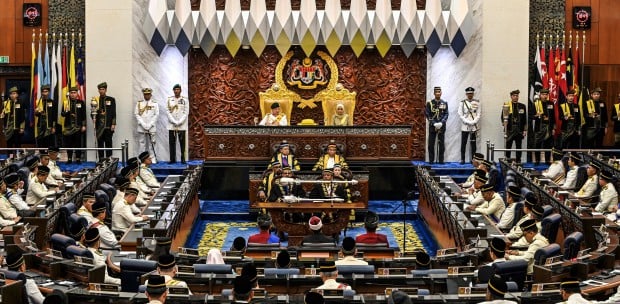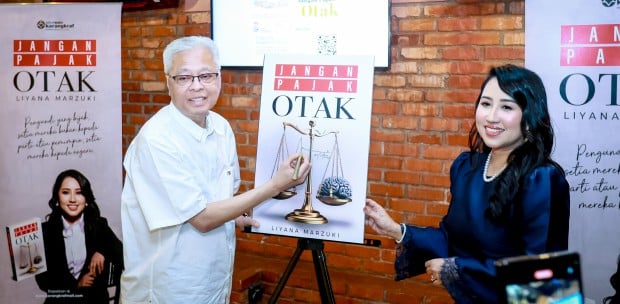NEW YORK: Prime Minister Datuk Seri Ismail Sabri Yaakob on Friday took to the world stage at the 77th session of the United Nations General Assembly to deliver his remarks at the General Debate.
In his wide-ranging address, Ismail Sabri joined heads of state from several other countries in calling for global solidarity to accelerate climate action and end global conflicts, in line with this year's theme, "A Watershed Moment: Transformative Solutions to Interlocking Challenges".
Clad in a traditional baju melayu, complete with songkok and sampin, the prime minister delivered his 20-minute speech, in the national language, Bahasa Melayu.
Ismail Sabri evoked the "World Family" spirit, and throughout his address called on the international community to address the "worsening and unaddressed challenges" confronting countries today, paying equal attention to the issues of the Global South such as the long-running Rohingya crisis.
Here are six key takeaways from Ismail Sabri's speech:
SET UP INTERNATIONAL MONETARY COOPERATION MECHANISM
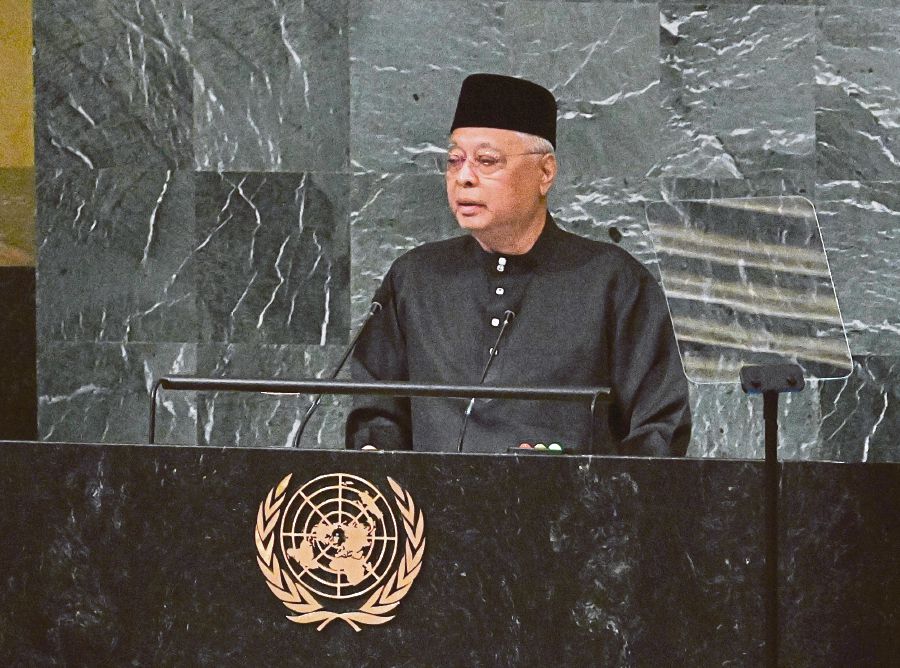
Ismail Sabri began his remarks by urging UN members to establish an international monetary cooperation mechanism to build a more effective and just system for global development.
Cooperation and coordination among countries, he said, needed to be "stepped up" to achieve economic well-being for all.
As policies and decisions of some countries could affect other nations in this interconnected world, he said domestic monetary decisions must adjust for developing countries' realities and needs.
"For example, in tackling inflation that the world is suffering from, the monetary policy and determining of interest rates by one country also has an impact on other countries.
"In an international financial and monetary structure that is still dominated by a few major powers, as well as during the world economic recovery, domestic monetary decisions have to be adjusted by considering the reality and needs of developing countries."
CLIMATE FINANCE FOR GLOBAL SOUTH NATIONS
Turning to the acceleration of climate change effects and Malaysia's losses incurred from climate disasters in 2021, Ismail Sabri raised the alarm for urgent action and climate finance.
The prime minister bluntly said: "The fact remains that developed countries must bear the responsibility of increasing aid for developing countries" by fulfilling their commitment to providing a yearly allocation of USD100 billion (RM457.85 billion) "unconditionally."
This, he said, will allow the global south undertake climate actions that should have been implemented since 2020.
"Climate change is a universal problem that affects us all. Last year alone, Malaysia was struck by the most serious floods in its history, resulting in losses estimated at USD1.4 billion (RM6.1 billion).
"Many lives were lost and almost 100,000 people had to be moved to temporary evacuation centres. This situation happens not only in Malaysia but in several other countries as well. Clearly, mitigation and adaptation measures need to continue," the prime minister said.
The Malaysian government will continue its call for climate action and "loss and damage" funding at the 27th United Nations Framework Convention on Climate Change in Sharm El-Sheikh, Egypt.
As a general term used in UN climate negotiations, "loss and damage" refers to the devastating effects of the climate crisis that go beyond what people can adapt to, or when options exist but a community does not have the resources to access or utilise them.
UN secretary-general Antonio Guterres at Tuesday's opening of the General Debate stressed that "polluters must pay", mainly G20 countries that are responsible for 80 per cent of all greenhouse gas (GHG) emissions.
SUSTAINABLE DEVELOPMENT, A WORLD RESPONSIBILITY
Noting that the Covid-19 pandemic has slowed global efforts in achieving the 17 Sustainable Development Goals (SDGs) 2030, Ismail Sabri joined Guterres' call for governments of the world to refocus and get SDGs back on track.
He asserted that the implementation and success of a greener and more sustainable socio-economic development will be achieved with fair and inclusive response to that pledge.
Malaysia, he said, therefore welcomes the High-Level Political Forum on Sustainable Development next year as it allows countries to look back at what has been achieved and what can be improved for the benefit of all.
In calling for new technologies, such as ones that help countries switch to renewable energy to be made affordable for developing countries, Ismail Sabri renewed Malaysia's commitment to ensure environmental conservation and sustainability.
He referenced various national measures implemented. For example, he said Malaysia introduced the Malaysian Sustainable Palm Oil standard to meet requirements for the purpose of sustainable development.
Malaysia is committed to reducing GHG emissions by 45 per cent based on the Gross Domestic Product by 2030, and has set a target of achieving 31 per cent renewable energy use by 2025 and net zero emissions by 2050, he said.
"The National Energy Policy 2022-2040 was implemented in Malaysia on Sept 19, 2022, to build macro-economic resilience and energy supply security. Malaysia has agreed to establish a National SDG Centre to intensify SDG programmes and monitor their progress."
Further, he said as one of only 17 bio-diverse countries in the world, Malaysia is aware of its responsibility to maintain and preserve its natural resources for future generations.
"During the Earth Summit in 1992, Malaysia pledged to maintain at least 50 per cent of its land mass under forest and tree cover. Three decades on, Malaysia today still has 54 per cent of forested areas in the entire country. This percentage will increase following ongoing aggressive reforestation measures."
ABOLISH UN SECURITY COUNCIL'S VETO POWER
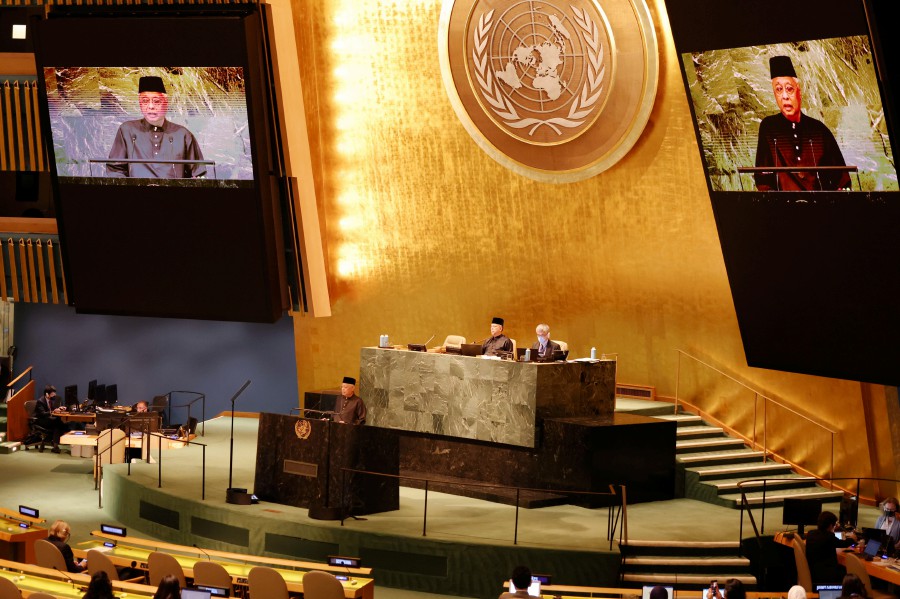
Malaysia joined the likes of Turkey in advocating for the right of "veto" in the UN Security Council (UNSC) system to be abolished, in line with the principle of "one country one vote".
Ismail Sabri unapologetically said "the biggest problem in the UN is the Security Council", and called the veto power undemocratic.
"The conflicts and crises that occur in the world, including in Ukraine, Palestine and Myanmar, cannot be resolved due to the debility of the global governance system and the UN," he said.
He explained that the power of veto is "often misused to favour the world powers that have it."
"It is not democratic and violates the principles of human rights. This makes it impossible for conflicts to be resolved by any of the permanent members of the Council."
As an organisation that brings the spirit and symbol of democracy to the world, the UN needs to return to its foundation, Ismail Sabri said.
The UNSC has primary responsibility for the maintenance of international peace and security. It comprises five permanent members and 10 non-permanent member countries. The five permanent members - Russia, the UK, China, France and the United States - can veto any substantive resolution.
Over the years, there have been mounting calls to reform the UNSC amid criticisms such as current membership does not reflect today's world; developing countries are under-represented; five permanent members abuse their privileges; and lack of transparency and efficiency in the decision-making process.
In April 2022, UN adopted a resolution requiring UNSC permanent members to justify veto use.
SEEKING LASTING SOLUTION TO THE ROHINGYA CRISIS
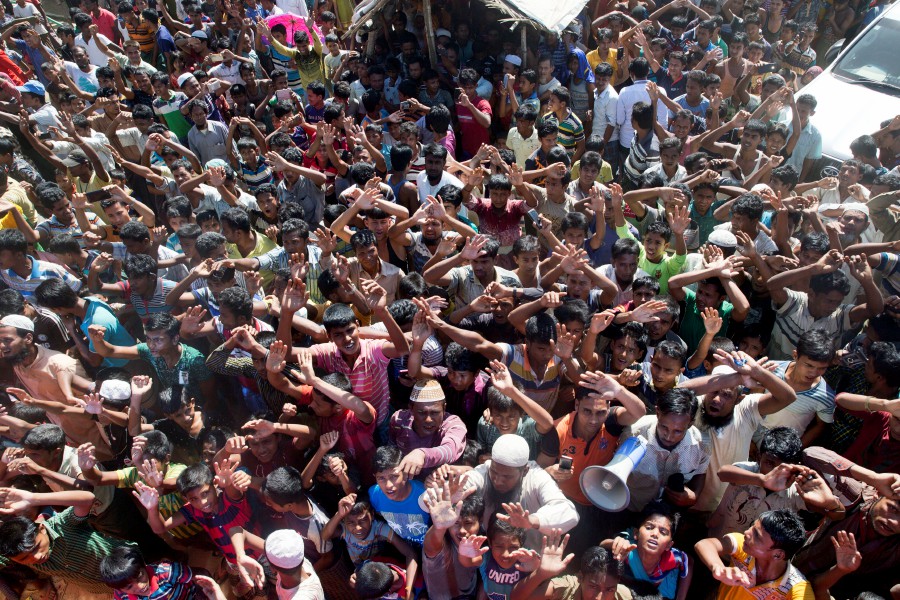
Malaysia emphasised the international community's responsibility in addressing the root cause of the Rohingya crisis, noting that the issue will not be resolved until the Myanmar crisis is addressed.
Ismail Sabri called out the Security Council for not taking "any serious action" in dealing with the situation and expressed continued disappointment over the situation in Myanmar and the junta's lack of progress in implementing Asean's Five Point Consensus.
"Some even see the Security Council as having washed its hands off and handing the matter over to Asean," he noted.
"In its current form, the Asean 'Five Point Consensus' cannot continue any longer. Therefore, this consensus needs to be given a new lease of life and refined based on a clearer framework, timeframe and end goal. Indeed, what is more important is that the aspirations of the people of Myanmar must be fulfilled."
Citing Malaysia's proactive role in remedying crises and conflicts in Southeast Asia, he called on all countries to take in more refugees to be resettled in their respective countries.
He said although Malaysia is not a signatory to the 1951 Convention on the Status of Refugees and the 1967 Protocol, the country, on humanitarian grounds, accepted nearly 200,000 Rohingya refugees.
ADDRESSING CRISES IN PALESTINE, UKRAINE
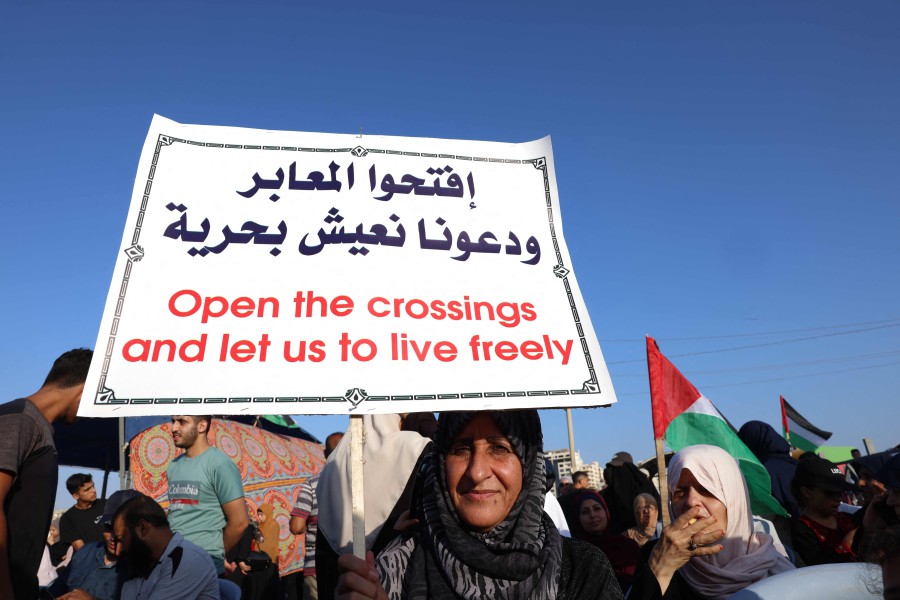
Pointing to the situation in the Occupied Palestinian Territory, Ismail Sabri decried "the brutal occupation by Israel", labelling Israel an "apartheid entity".
Malaysia, he said is saddened by the plight of the Palestinian people who continue to live under the shackles of Israel's discriminatory policies.
"Illegal settlements are becoming more widespread. This is against international law, including Security Council Resolution 2334. The most basic rights of the Palestinian people continue to be denied."
He used the speech to urge major powers to be "honest in resolving the issue of cruelty" faced by the Palestinians and called on the UN to take a firm stand and act fast to resolve the crisis.
"What is happening today is that most countries are so quick to act in the case of Ukraine. Malaysia wants the same action to be taken to resolve the issue of Palestine."
On the war in Ukraine, Malaysia reiterated its insistence that all countries, especially the big powers, refrain from creating isolation blocs that will only push the world towards a cold war.
Ismail Sabri stressed that peace and stability are crucial in overcoming every major challenge of today; whether it is the climate change crisis, global poverty or the lasting effects of the pandemic.
He said it is due to conflicts that the world's population is now facing various problems such as lack of nutrients and food resources.
In facing this, Malaysia called on all countries to emphasise the issue of food security to guarantee sufficient food resources for all.
"The world needs to realise that peace can only be achieved through dialogue and negotiation.
"The price to be paid for a war is high. This is proven by the situation experienced by Ukraine. The effects are felt not only by the people and the country but also by the world. This conflict has threatened peace, global security and the economy, and undermined food security."
He added that Malaysia welcomes the creation of the sea route corridor that allows for the shipment of grain from Ukraine, describing it as a positive step in addressing the food security problem.
NST specialist writer Tharanya Arumugam is a 2022 fellow of the United Nations Reham Al-Farra Memorial Journalism Fellowship.


